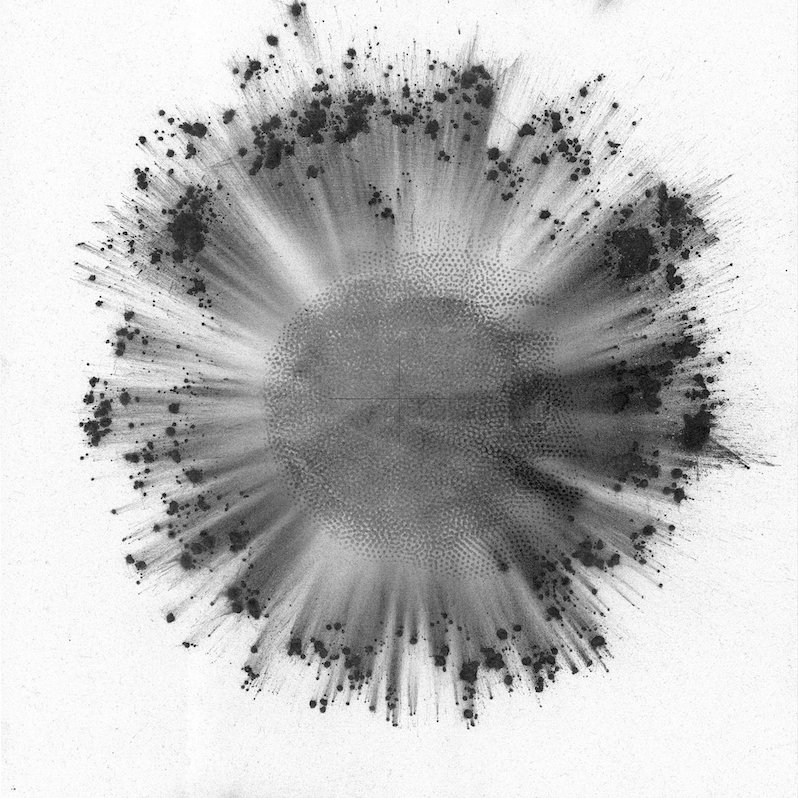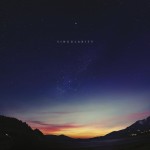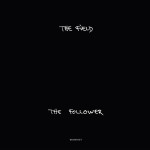Trentemøller : Obverse

Obverse descends in nocturnalist gloom, all purple and gold, like a streetlamp reflecting off of the oil and asphalt of city streets. There is an intense urban atmosphere; it is not the night wanderings of forest and stream but alley and street. You can almost see the closed shops and canvas awnings around you, almost feel the cool air of evening biting into your scrunched shoulders as you hurry. It is an immediate and imagistic record, one that wastes no time with intros and long spell-bindings to begin enacting its sonic imagery. Trentemøller is a known genre wanderer and puts that study to good use, wielding shoegaze and post-punk and goth rock and downtempo as ways to shape the color and image of sound rather than just to enact their cliches and call it a finished work. As a result, Obverse feels like a synthetic whole, one that mixes and melds its constituent elements thoroughly enough that it feels most at home in similarly genre-spanning fields as trip-hop or the aforementioned downtempo.
The downside of this, of course, is that the album has but the single contained mood, somewhere between pained and angst-ridden yearning in slow smolder and the calm and clarity of evening. It’s admittedly a fertile enough space to situate songs and even a whole album, and Trentemøller is smart enough not to answer the emotional questions the songs bring to mind so as to avoid the cloying and annoying self-help vibe of other artists who mine the same space. This evasiveness to answer the question is both a strength and a weakness; there is a virtue to letting these feelings moulder without end, because ultimately they are nocturnal feelings that don’t gesture to anything but themselves and thus can’t really be “solved,” but just as much can feel emotionally aimless without that desperately-sought cathartic breakthrough.
Take Saturdays=Youth by M83 for example, another record that explores similar terrain. That record certainly seeks to encapsulate and underscore its inspiring elements a bit more directly and, even though it ends with a slow and drawn-out ambient piece that ultimately dissolves any of its own attempts to answer its emotional concerns, it feels satisfactory and perhaps even transcendent. Portishead, likewise, are the undisputed masters of this space, with their discography being a masterclass in how to navigate these emotional/experiential color/image sets in a way that doesn’t do us the disservice of overly simplifying the complex and contradictory spaces they gesture to while still feeling fulfilling. It’s not that Trentemøller doesn’t satisfy; his focus on genre-agnostic soundshaping and keen pacing keep the songs delivering new concepts and elements at a steady rate, feeling like that perfect middle ground between refreshing and hypnotic. Perhaps then it is a misplaced sentiment to judge this record in the same way that the more pop-oriented compositions of those previous bands skew, living as close as it does to ambient music as a whole. If hypnosis is the point, that long slow dark tunneling into the center of some experience, then Obverse is a success.
This is perhaps the best accomplishment of the album. Where other albums of this style perhaps try to encapsulate and sum up these types of nocturnal experiences, the way thought disintegrates at 3 a.m. and forces us into cold air to pace and ponder and fret and collapse, Obverse seeks instead to live inside them. There are no keen lyrics that seem to slice through the experience, seem to both strike it out and encircle it; instead, these songs are like a light burning within it, capturing not what those sensations feel like on reflection with the wisdom of the fullness of time but the confusion and aimlessness in that moment. It is a more literary and sincere depiction then, perhaps, choosing as it does to be honest even in ugliness with how these types of spaces seem to spill out endless without answer, full of repetition with only slight deviation. The hypnosis, then, is the point. The purpose is not insight or some trite rejoinder to the experience but the experience itself, pure and undiluted.
Similar Albums:
 Jon Hopkins – Singularity
Jon Hopkins – Singularity
 Darkside – Psychic
Darkside – Psychic
 The Field – The Follower
The Field – The Follower
Langdon Hickman is listening to progressive rock and death metal. He currently resides in Virginia with his partner and their two pets.
